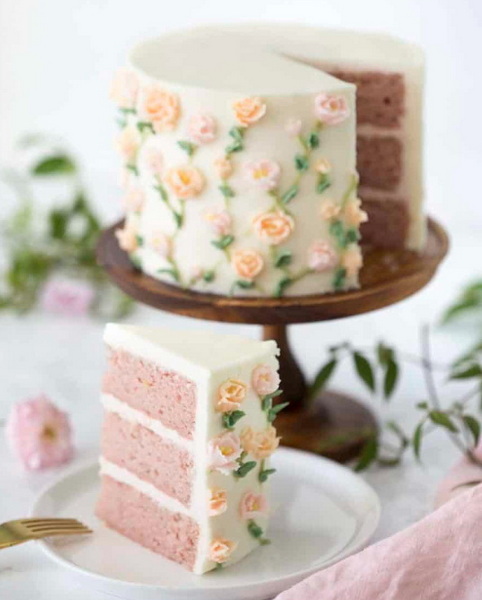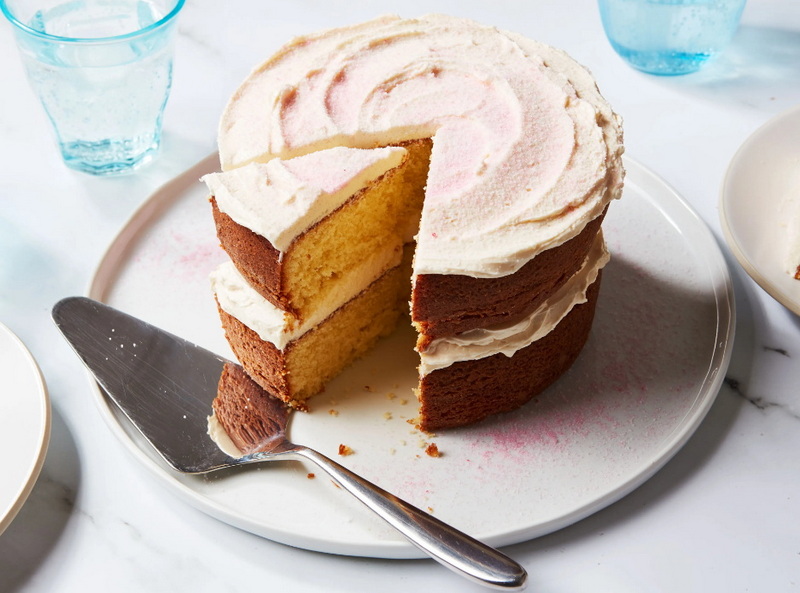
Content Menu
● Understanding Disposable Cake Plates
● Safety Concerns with Disposable Cake Plates
● Best Practices for Using Disposable Cake Plates
● Comparative Analysis of Disposable Cake Plate Materials
● Choosing the Right Size of Disposable Cake Plates
● Environmental Considerations
● Innovative Alternatives
● Conclusion
● FAQs
>> 1. Are all disposable cake plates safe for hot food?
>> 2. Can I use paper plates in the microwave?
>> 3. What is the best material for serving hot cakes?
>> 4. Are biodegradable cake plates safe for hot food?
>> 5. How can I ensure my disposable plate is environmentally friendly?
● Citations:
When it comes to serving cakes, whether for a birthday party, wedding, or any special occasion, the choice of servingware plays a crucial role in both presentation and safety. Disposable cake plates are a popular option due to their convenience and variety. However, many people wonder about their safety, especially when it comes to serving hot or cold cakes. This article delves into the various aspects of disposable cake plates, including materials, safety concerns, and best practices for use.

Understanding Disposable Cake Plates
Disposable cake plates come in various materials, including plastic, paper, and biodegradable options. Each type has its unique characteristics and suitability for different types of food.
- Plastic Plates: Typically made from polypropylene (PP) or polystyrene (PS), plastic plates are durable and can withstand higher temperatures. PP plates are microwave-safe and can handle hot foods without deforming.
- Paper Plates: These are often used for their lightweight nature and cost-effectiveness. However, their safety for hot food can vary significantly based on whether they have a plastic coating. Uncoated paper plates are generally not recommended for hot items as they may leak or release harmful chemicals when heated.
- Biodegradable Plates: Made from materials like bagasse (sugarcane fiber), these plates are eco-friendly and can handle moderate heat levels. They are suitable for both hot and cold foods but should be checked for specific temperature resistance.
Safety Concerns with Disposable Cake Plates
When considering the safety of disposable cake plates for hot and cold cakes, several factors come into play:
1. Chemical Migration: Low-quality disposable plates may leach harmful chemicals into food, especially when exposed to heat or moisture. This is particularly a concern with plastic-coated paper plates.
2. Temperature Resistance: Different materials have varying temperature tolerances. For instance:
- Polypropylene can withstand temperatures up to 120°C (248°F), making it safe for hot cakes.
- Paper plates without a plastic coating can warp or leak when used with hot foods.
3. Environmental Impact: While many disposable plates are convenient, their environmental footprint is significant. Biodegradable options like bagasse plates offer a safer choice for both health and the environment.
Best Practices for Using Disposable Cake Plates
To ensure safety when using disposable cake plates for both hot and cold cakes, consider the following tips:
- Choose the Right Material: Always select a plate that is specifically labeled as safe for the intended temperature. For hot cakes, opt for polypropylene or high-quality biodegradable options.
- Check for Coatings: If using paper plates, ensure they do not have plastic coatings unless they are specifically designed for hot foods.
- Avoid Microwaving Non-Microwave Safe Plates: Only microwave disposable plates that are explicitly labeled as microwave-safe to prevent chemical leaching.
- Consider Presentation: Many disposable plates come in elegant designs that can enhance the visual appeal of your cake without compromising safety.

Comparative Analysis of Disposable Cake Plate Materials
| Material | Temperature Resistance | Microwave Safe | Eco-Friendly |
| Polypropylene | Up to 120°C | Yes | No |
| Polystyrene | Low | No | No |
| Paper (uncoated) | Low | No | Yes (if untreated) |
| Paper (coated) | Moderate | Check label | No |
| Bagasse | Up to 200°F | Check label | Yes |
Choosing the Right Size of Disposable Cake Plates
Selecting the appropriate size of disposable cake plates is essential not only for aesthetics but also for functionality. The size should correspond to the type of cake being served:
- Standard Sizes: Most disposable cake plates range from 9 to 10 inches in diameter for standard cakes. This size is ideal for layered cakes and larger desserts.
- Dessert Plates: Smaller dessert plates (6-7 inches) are perfect for individual servings or smaller slices of cake, allowing guests to enjoy a variety of flavors without overwhelming portions.
- Specialty Shapes: Some disposable plates come in unique shapes or designs that can add an artistic touch to your dessert table. Consider using themed plates that match your event's decor.
Environmental Considerations
As environmental awareness grows, many consumers seek eco-friendly alternatives to traditional disposable products. Here's how different materials stack up:
- Plastic Plates: While durable, they contribute significantly to landfill waste and take hundreds of years to decompose. Opting for BPA-free plastics can mitigate some health risks but does not address environmental concerns.
- Paper Plates: Often perceived as more sustainable, they still pose challenges due to resource-intensive production processes that require significant water and energy consumption. Additionally, many paper plates are treated with chemicals that render them non-compostable.
- Biodegradable Options: Materials like bagasse or palm leaves break down more easily than traditional plastics or treated paper products. They provide an environmentally responsible choice while maintaining functionality.
Innovative Alternatives
In recent years, innovative alternatives have emerged in the realm of disposable tableware:
1. Edible Plates: Made from ingredients like flaxseed or other grains, edible plates offer a unique solution that eliminates waste altogether while providing an interesting culinary experience.
2. Compostable Tableware: Products made from plant-based materials like sugarcane pulp or bamboo fibers not only serve their purpose effectively but also return nutrients back to the soil after disposal.
3. Reusable Options: While technically not disposable, investing in reusable tableware can significantly reduce waste over time and provide a more sustainable solution for frequent gatherings.
Conclusion
In conclusion, disposable cake plates can be safe for serving both hot and cold cakes if chosen wisely. Materials like polypropylene offer excellent temperature resistance and microwave safety, while biodegradable options like bagasse provide an eco-friendly alternative without compromising on safety. It is essential to consider the specific use case and material properties when selecting disposable cake plates to ensure both food safety and environmental responsibility.

FAQs
1. Are all disposable cake plates safe for hot food?
Not all disposable cake plates are safe for hot food. It's important to check the material and any coatings on the plate before use.
2. Can I use paper plates in the microwave?
Only use paper plates that are specifically labeled as microwave-safe; otherwise, they may leach chemicals or become soggy.
3. What is the best material for serving hot cakes?
Polypropylene (PP) is one of the best materials for serving hot cakes due to its high-temperature resistance.
4. Are biodegradable cake plates safe for hot food?
Yes, biodegradable cake plates made from materials like bagasse can typically handle moderate heat levels but should be checked individually.
5. How can I ensure my disposable plate is environmentally friendly?
Look for labels indicating that the plate is biodegradable or compostable, such as those made from bagasse or other plant-based materials.
Citations:
[1] https://eventableware.com/a-complete-guide-disposable-plates/
[2] https://anationofmoms.com/2023/11/disposable-tableware.html
[3] https://diyecobox.com/perfect-guide-to-disposable-plate-sizes/
[4] https://pmc.ncbi.nlm.nih.gov/articles/PMC11595841/
[5] https://www.sumkoka.com/disposable-plate-size-guide.html
[6] https://www.verterra.com/blogs/thedirtydish/paper-plates-versus-palm-plates-a-fight-for-sustainability
[7] https://kitchendance.com/blogs/default-blog/disposable-pans-for-baking-tips-and-tricks
[8] https://smartyhadaparty.com/blogs/home/disposable-plates-reviews-and-ratings
[9] https://www.lesuipackaging.com/products/disposable-cake-packaging/
[10] https://www.alibaba.com/showroom/disposable-cake-plates.html
[11] https://diyecobox.com/health-risks-of-paper-plates/
[12] https://smartyhadaparty.com/blogs/home/the-best-way-you-can-party-with-disposable-plates
[13] https://www.irjet.net/archives/V8/i7/IRJET-V8I7718.pdf
[14] https://www.reddit.com/r/Baking/comments/1badvy5/how_do_bakeriescafe_keep_desserts_and_pastries/
[15] https://smartyhadaparty.com/collections/pastry-cake-plates
[16] https://ambican.com/blog/comparing-materials-which-paper-plates-are-most-sustainable/
[17] https://poshsetting.com/blogs/news/partying-with-disposable-plastic-plates-the-ultimate-guide
[18] https://www.researchgate.net/publication/355490167_Disposable_Food_Packaging_and_Serving_Materials-Trends_and_Biodegradability
[19] https://sherisilver.com/2015/09/22/how-to-store-warm-cake/
[20] https://thermo-future-box.com/Transport-Box-for-Cakes

















